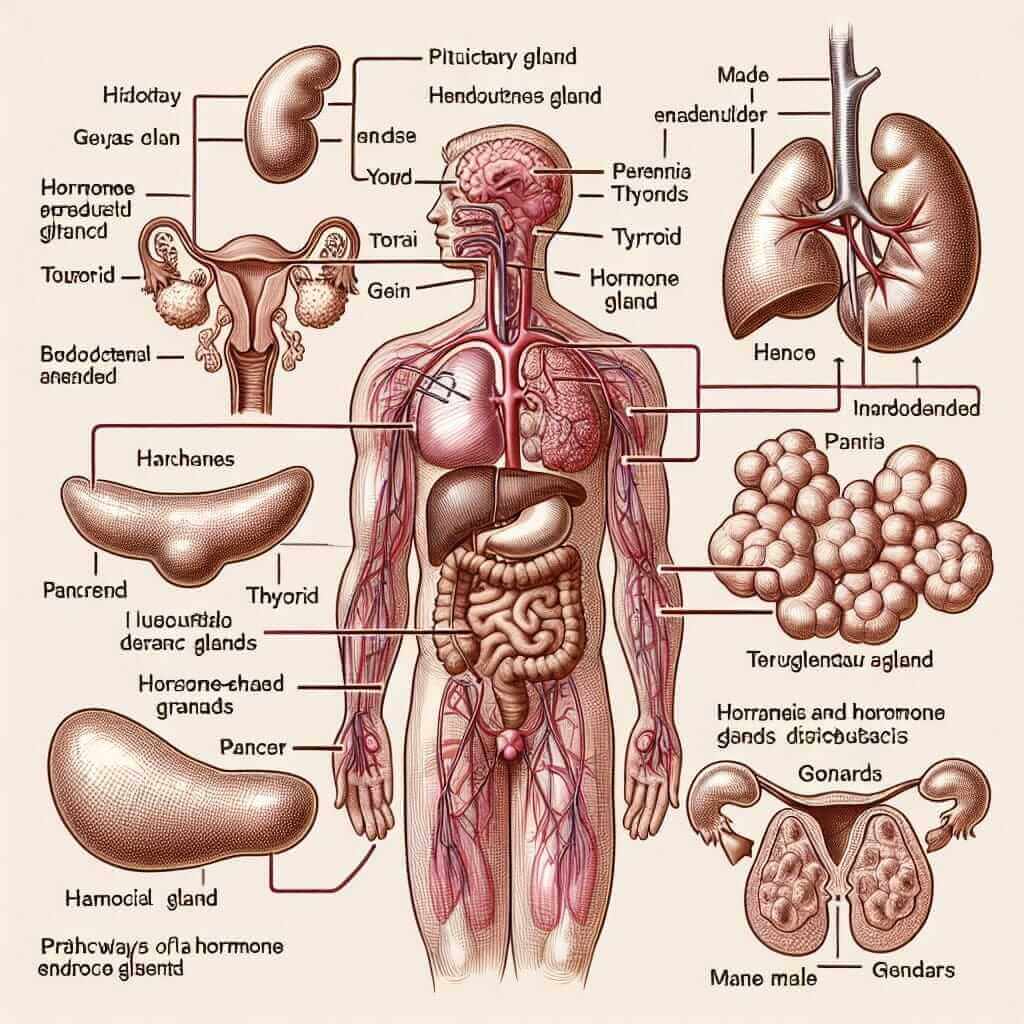The IELTS exam often includes topics related to health and science, and understanding key vocabulary is crucial for achieving a high score. One such term you might encounter is “hormone,” a word with significant weight in biological and medical contexts. This article will delve into the meaning of “hormone” and related vocabulary, providing you with the tools to confidently discuss this topic on your IELTS exam.
Understanding “Hormone” and Its Significance
Hormone (noun) /ˈhɔːr.moʊn/ : A chemical substance produced in the body that controls and regulates the activity of certain cells or organs.
Synonyms: Endocrine, chemical messenger, regulatory substance
Example: Hormones play a vital role in regulating growth, metabolism, and mood.

“Hormone” in the IELTS Exam
The topic of “hormones” can appear in various sections of the IELTS exam:
- Listening: You might encounter a lecture on the endocrine system or a conversation about hormonal changes.
- Reading: Passages may focus on scientific research related to hormones or discuss the impact of hormones on human behavior.
- Writing Task 2: An essay question might ask you to discuss the ethical implications of hormone therapy or the factors influencing hormonal imbalances.
- Speaking: You could be asked to describe a time you experienced a significant hormonal change or discuss the importance of a balanced lifestyle for hormonal health.
Applying “Hormone” in IELTS Contexts
Listening Example
You might hear: “… and this imbalance in hormones like cortisol can lead to a number of health problems, including weight gain and sleep disturbances.”
Understanding the context: The speaker is likely discussing the effects of stress on the body, highlighting cortisol as a key hormone involved in the stress response.
Writing Task 2 Example
Question: Some people believe that teenagers’ behavioral problems are primarily caused by hormonal changes. To what extent do you agree or disagree?
Sample response: “While it is undeniable that hormonal fluctuations during adolescence contribute to emotional volatility, it is overly simplistic to attribute all behavioral issues to this single factor. Social pressures, environmental influences, and individual psychological development also play significant roles.”
Speaking Example
Examiner: How do you think stress affects our overall well-being?
Candidate: “Well, when we’re stressed, our bodies release hormones like adrenaline and cortisol. While these hormones help us deal with immediate threats, prolonged exposure to them can be detrimental to our physical and mental health.”
Collocations and Related Vocabulary
- Hormonal changes: Fluctuations in hormone levels, often associated with puberty, pregnancy, and menopause.
- Hormonal imbalance: A state where hormone levels are either too high or too low, potentially leading to health issues.
- Hormone therapy: The use of medication to adjust hormone levels in the body.
- Endocrine system: The collection of glands that produce hormones.
- Adrenaline: A hormone released in response to stress, often referred to as the “fight-or-flight” hormone.
- Cortisol: A steroid hormone involved in stress, metabolism, and immune function.
- Insulin: A hormone that regulates blood sugar levels.
- Testosterone: A primary male sex hormone.
- Estrogen: A primary female sex hormone.
Idiomatic Expressions
While there aren’t many idioms directly related to “hormone,” you can use figurative language to describe the effects of hormones:
- “A surge of hormones”: To experience a sudden and intense feeling or emotion, often related to excitement, fear, or love.
- “Hormones are raging”: A colloquial way to describe the experience of intense hormonal fluctuations, often used humorously.
Conclusion
Mastering vocabulary related to health and science, including the term “hormone,” is essential for succeeding in the IELTS exam. By understanding the meaning, usage, and related vocabulary, you can confidently discuss this topic in all sections of the test. Remember to practice using these words and phrases in context to enhance your fluency and accuracy.